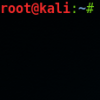Search the Community
Showing results for tags 'Firefox'.
Found 22 results
-
Description of Issue and Initial Testing: As the title states, whenever I have AirVPN with network lock enabled then starting Firefox takes an inordinately long time (for example, if I were to open the terminal and type "Firefox" it takes about 5-10 minutes before anything happens on my screen; it does not matter if I start Firefox from the GUI or terminal). The issue does not present itself when I try to open a chromium-based browser; it opens normally. It does not matter whether it is the first time launching Firefox or the nth time for n > 1. If I attempt to start Firefox, then the browser will still not open if I disconnect from the server. It will open the instant I turn off network lock. Startup speed is normal if I connect to a server without network lock enabled. Sometimes the problem intermittently comes and goes (bad days and good days) but most of the time it is there. I have tried adjusting the homepage in firefox and it made no difference, even if I set the homepage as simply a blank page. Conditions to reproduce: Use Eddie-UI on Fedora 40 (unsure if it depends on the distro/OS) Enable network lock Connect to any server Attempt to open Firefox or any Firefox-based browser. Investigating further, the following messages are printed in journalctl when the conditions above are satisfied (approximately alternating): I do not know enough about how networks are managed on gnu/linux to resolve this on my own, or make sense of this error. Nothing in the logs for Eddie seem to point to the issue either. I have attached the log from Eddie for completeness. It shows me connecting and disconnecting from various servers and attempting to open Firefox with network lock enabled. Additional info: OS: Fedora 40 (the issue is present on earlier versions of Fedora as well, at least since Fedora 35) Client: Eddie UI version 2.21.8 Firefox version: version 128.0, and present on earlier versions. Note: A separate issue that I will briefly mention here, in case it is relevant, is that on most WiFi networks I have a DNS leak visible in ipleak.net with AirVPN--with or without network lock. On a few networks this DNS leak is not present as long as network lock is enabled. When I say DNS leak I mean that ipleak.net shows the VPN DNS server as well as my router's DNS servers. Again, this may or may not be relevant. Eddie_20240715_004856.txt
-
Hi! How can I setup proxies for a containers addon in firefox to work with Tunnelblick on mac? My top goal to be able to use defferent airvpn servers within firefox. If it is possible. Thanks.
-
Yesterday, i upgraded from Windows 10 1909 Home x64, to Windows 10 20H2 (Home) x64, and my VPN did work just fine before the upgrade i am having problems now since the upgrade to the new version of windows 10, where things are not working. I can login to AirVPN with my account (sometimes it gives me a "can't bootstrap error"?), and i can lock my network, AND I CAN connect to a AirVPN server ... but when using my browser after all of this, NO WEBPAGES come up once "connected" - why? Eddie says i am connected (i use the windows GUI for x64), and it shows data up and down, in kbits, but the real proof of it is not there (Firefox is not letting me get any webpage over the VPN connection). i tried uninstalling Eddie, AFTER the windows 10 upgrade, and then re-installing Eddie. SAME PROBLEM. Incidentally during or after the windows 10 upgrade, it removed my VirtualBox adapter .... and i wonder if that was part of the probem. I am not wanting help here with virtualbox adapters lol so no worry there, but i just wondered if that was related to the issue? i dont know if the windows upgrade also jimmied with the TAP v9 adapter which Eddie uses or not? i do not know what is going on and i really just wanna use my paid service and be a happy customer. Please help. Thanks.
-
What are your thoughts? Is this more spyware? Or is this a better option that things like Silverlight for playing video via HTML5? Should it be disabled if you are not immediately using it? Or should it be disabled altogether? I do not trust Google. But it does work well for things like Amazon Prime Video.
-
What web browser do you use and why? Interested in hearing your opinions! I personally am a Chromium user, but I used to use Firefox. Chromium seem's to have a nice blend of security (with the sandboxing feature and updated Flash for Linux). uBlock Origin, HTTPS Everywhere and Privacy Badger all work, so I can still use some of the best security/privacy add-ons.
-
https://addons.mozilla.org/en-US/firefox/addon/canvasblocker/ https://addons.mozilla.org/en-US/firefox/addon/betterprivacy/ https://www.eff.org/privacybadger https://www.eff.org/https-everywhere https://www.requestpolicy.com/ https://addons.mozilla.org/en-US/firefox/addon/ublock-origin/ https://addons.mozilla.org/en-US/firefox/addon/self-destructing-cookies/ https://addons.mozilla.org/en-US/firefox/addon/privacy-settings/ Three of these have been suggested to need a how to guide. (Including one I did not have in the list for just this reason.) https://airvpn.org/topic/17983-anonymity-and-machine-identification/?do=findComment&comment=43344 First of all is Ublock Origin. It is a classic adblocker that can do much more than most other such extensions. Here is how to configure it. Click the Ublock Origin icon in the browser. (Obviously it is the icon surrounded in green.) That brings this little menu down. Click the title of the menu where it says Ublock Origin. (Again, the green highlight shows where to click in case I am being too unclear.) That brings us to the Ublock Origin Dashboard. Click the "3rd-Party Filters" tab and set it similar to this. You have a lot of options here, but this seems to work everywhere I go on the Internet. Your mileage may vary. Once you change, add, or remove any filters, you will see "apply" in the upper right corner. Click that to save your changes. It will automatically update the filters for you. Now Request Policy and NoScript work almost identically. So I am just providing instructions for Request Policy. Too many sites fail to work as desired with NoScript, so I do not use it most of the time. Lets say you open Random.org and want to see how it works. Like the last few images, the green highlight is around the icon to click for this extension to do what it does best. That brings you to this. It shows you each domain attempting to load content into the page. See the options at the very bottom? Those are the only ones you should ever use unless you are really certain you know what you are doing. If you load a site and the images do not load with the text, or the formatting is all messed up, it is likely because it is being blocked by this. Use the Temporarily Allow option on the very bottom to see if that fixes it. If not, you may have more domains to permit. But be warned not to use the "Allow Requests from" option on any site you are not certain you trust. Temporarily allowing a bad site will usually not be a terrible choice, but if you set it to allow them without using the temporary option, you will have to hope the site does not mess things up that you cannot fix, and it will remember all but the temporary permissions assigned here next time you load the browser too. Be warned in advance that some sites will have dozens of sites they attempt to load content from. These are almost always clickbait sites, and if you see one like that, you should close that tab and never go back. NoScript works almost the same, except it only prevents sites from using javascript. Questions? Ask away.
-
Hi, I'm using airvpn with eddie-ui over linux in firefox 63, settings->proxy an option is present DNS over HTTPS, it is cloudflare DNS is it recommended to use over airvp dns or not? thanks
-
https://www.ghacks.net/2018/04/02/configure-dns-over-https-in-firefox/ This seems interesting. Naturally I know that by using Air i am happy with the DNS that that they provide. However as a Firefox user it can't hurt to have 1.1.1.1 running on top as a https resolver for my browser only. Any issues of trust/leaking/logging etc with 1.1.1.1 will just pass back to Air. Thoughts?
-
Everyone knows Firefox. It's an extremely popular browser known for its versatility and a bit of a focus on privacy/security. Just a bit because Mozilla made the news with some questionable things, especially the Sponsored Tiles may have surprised some regular users. Still, Firefox is on top of everything since it's (mostly) open source and very extension-friendly - something other browsers just can't say about themselves (if they could talk ). The Chromium part of Chrome might be open source, but Google built in many proprietary parts.Opera is just based on an open source renderer, the rest is proprietary.Internet Explorer, or Edge, is proprietary software in its entirety.Every other browser you might have heard of is likely to be based on the Firefox codebase, so you don't have much options if you are looking for a FLOSS browser on your PC - it will be some flavor of Firefox, where every flavor alters/hardcodes something else in comparison to the original. Waterfox is no exception: It's based on Firefox. It's even so much based on it, you could think this is Firefox. So what does Waterfox change, and why am I writing about it? One of the annoyances of Firefox is that Mozilla doesn't offer a 64-bit version officially, there's only a beta. Waterfox is designed to run on those systems, even on 64-bit versions of Windows XP. Also, a few benchmarks have shown that Waterfox increases the browser's performance. But I wouldn't write about Waterfox if there weren't changes related to your "sense of openness" or privacy. So, in comparison to Firefox, there are no Sponsored Tiles - they were completely removed. all Telemetry/data collection things were removed.Encrypted Media Extensions (the proprietary DRM part) are disabled.the Pocket integration (also proprietary) was removed.the plugin whitelist was removed, containing mostly proprietary plugins (on install, those plugins will be enabled without the user explicitly enabling them; I think this tech is no longer used in Firefox, anyway, but stlll). As a result, unsigned extensions are allowed to be installed again. Less secure for normal users, but gives you back your freedom of plugin choice AND your ability to run older plugins Want to test it out? Just install it. It uses your existing Firefox profile, so when you launch it you will find everything right where you left it. You can independently uninstall Firefox or Waterfox without issues. Download it from the website or just compile it yourself. -- Update 01.01.2017 -- As of Waterfox 50.0, it is possible to build Waterfox on Linux, making Waterfox available for all major platforms. I'm now considering Waterfox again.
-
I've came across with different settings via about:config and found them too tiresome, so I've decided to amend the existing user.js from ghacks Short description is here: In Firefox profile folder ( Help-> Troubleshooting information-> Profile directory ) copy and save your current pref.js file. If something falls apart you can safely delete your user.js and replace pref.js with its older version. It's important!! The following part is my amendments to ghacks user.js. user_pref("network.cookie.cookieBehavior", 1); 2- is too much, you cannot enter some websites with it. Or be ready to change it in user.js ( and in pref.js as it preserve previous user's choice) every time. user_pref("network.cookie.lifetimePolicy", 2); the commented option from original file was 0 (The originated server sets the cookie lifetime. (default)) user_pref("privacy.clearOnShutdown.cookies", true); it was false on ghacks-user.js, but true was the good default option I also uncommented related safebrowsing options, for example: user_pref("browser.safebrowsing.malware.enabled", false); user_pref("browser.safebrowsing.phishing.enabled", false); I like some old add-ons , so user_pref("extensions.legacy.enabled", true); For those, who prefer searching from the address string user_pref("keyword.enabled", true); Yes, this is invocation for DuckDuckGo user_pref("browser.search.defaultenginename.US","DuckDuckGo"); user_pref("browser.search.defaultenginename", "DuckDuckGo");
-
Hello everybody! I was looking arround in this forum and saw a lot of questions about Firefox-leaks, -tracking and -hardening. I just took some time to share my knowledge about this topic with you and hope it might help some people. I think sharing is caring and whenever I found useful tipps on the Internet, I was very thankful for the the people who took their time to help others and wrote it down. The following are settings I find myself doing over and over again after new Friefox-Installation. So here is my part for helping this community to grow their knowledge: (All settings can be changed, by typing "about:config" into the URL-bar of Firefox and press enter; then search for the following entries) 1. "network.http.send.RefererHeader" - sends the next website that you visit information from which site you come (e.g. by clicking on a link) standard-value is "2" which means it does send these informations. setting the value to "1" is the same, only if you click on images, the RefererHeader won't be send anymore. setting the value to "0" disables the RefererHeaders completely. 2. "network.http.sendSecureSiteReferer" - same just for https-websites standard-value is "true" setting value to "false" (by double-clicking) disables this for https-webistes as well. 3. "privacy.trackingprotection.enabled" - the "new" tracking-protection from Firefox standard-value should be on an up-to-date Firefox already on "true" which enables this feature. setting the value to "false" disables it. 4. "geo.enabled" - Geo-tracking standard-value is "true" setting value to "false" disables geo-tracking. 5. "browser.safebrowsing.enabled" - here the Firefox checks if a website is secure by comparing it with Google's database. standard-value is "true" which means that everytime you call a website, the Firefox will send information about URL's to Google to compare if it's safe. setting the value to "false" disables this. (Please note that this setting doesn't make your Firefox more secure, but you can disable sending all the URL's to Google) 6. "browser.safebrowsing.malware.enabled" - does the same as above with your downloads. standard value is "true" setting the value to "false" will disable sending all you download-information to Google. (I've seen a lot of things that Google marks as unsecure although the datas were secure) 7. "dom.event.clipboardevents.enabled" - If you copy a text or picture from a webpage, Firefox will tell it the webpage and the webpage could eventually prevent you from copying these things. standard-value is "true" setting the value to "false" won't tell the website anymore, so it can't prevent you from copying things. 8. "dom.event.contextmenu.enabled" - shows a website that you call it's information via contextmenu (e.g. the source-code of the website). Also here the website then could prevent you from doing this. standard-value is "true" setting the value to "false" will allow you to do what you want to do again. 9. "network.cookie.cookieBehavior" - Cookie behavior in your Firefox. standard-value is "0" which means tha ALL cookies are allowed. setting the value to "1" will only allow cookies from the current website on which you are on. setting the value to "2" will disable all cookies. (Note that for some website you will need cookies, otherwise they won't work anymore). 10. "network.cookie.lifetimePolicy" - setting for how long a Cookie is saved in the Firefox standard-value is "0" which means cookies can stay forever, or in other words: The webiste decides how long they stay, which is mostly forever. setting the value to "1" means that Firefox will ask you how long a cookie may survive. setting the value to "2" means that cookies only live until you close the Firefox. setting the value to "3" means that cookies will survive as long as you specified in "network.cookie.lifetime.days" 11. "network.dnsCacheEntries" - setting for how many entries of websites that you visited will Firefox remember. standard-value is "400" you can set a value of whatever you think you'll need. 12. "network.dnsCacheExpiration" - in seconds, how long does Firefox remember dns-queries. *Please Note if you take this down to a small value, it will cause more traffic, because then Firefox has to ask more times for dns depending on the value set. 13. "places.history.enabled" - the classic Firefox-history of which websites you called. 14. "browser.formfill.enabled" - Firefox remembers which entries were made into formular-fields. standard-value is "true" setting the value to "false" will disable the memory of these information at all. 15. "browser.cache.disk.enable" - visited websites will be saved in the cache 16. "browser.cache.memory.enable" - same as above, just for your (RAM) memory. 17. "browser.cache.offline.enable" - same as above for your offline-cache. 18. "browser.send_pings" - websites can track you by sending pings to your Firefox. should be set "false" to disable this. 19. "network.dns.disableIPv6" - as long as you don't use IPv6 you can disable this setting, it's also the standard value in a new Firefox. If your ISP upgrades to IPv6 don't forget to enable this again. 20. "network.prefetch.next" - If you are on a website, your Firefoy will already load the next website which you can surf to from the current website as a background-job. This is for loading these websites faster if you click on them. standard-value is "true" setting the value to "false" will disable this feature. 21. "webgl.disabled" - this setting is for the creation of the so called "canvas-datas" which can be used to easily track a user. 22. "media.peerconnection.enabled" - this is for WebRTC-requests of websites. Even when using a VPN and this setting is enabled, you can be tracked and your real IP will leak. setting the value to "false" will disable those requests. I would appreciate if you use this thread to post your settings, if I forgot something important, or if some settings will change in the future. I hope you enjoy P.S. Here you got some websites to test if your browser leaks: 1. https://ipleak.net/ 2. https://diafygi.github.io/webrtc-ips/ 3. http://ipv6leak.com/ regards, me
-
Scenario : 1) Launch AirVPN (network lock mode) 2) Launch Firefox 3) Browse any website and leave Firefox opened 4) Close AirVPN the "clean" way (AirVPN menu > Exit) : DNS settings are back to normal (I verified this) 5) Try to browse some other websites from the previously opened Firefox window : webpages won't load (blank page) 6) Close Firefox completely 7) Re-launch Firefox : this time webpages are loading normally Why do I have to restart Firefox once I'm done with AirVPN client ? BTW, if I launch another browser (IE, Vivaldi or whatever) at step 5 webpages are loading normally
-
CLIQZ GmbH is a start-up based in Munich, Germany, developing the web browser Cliqz. Cliqz focuses on two things: An integrated "advanced" tracking protection feature which rewrites "unsafe" tracking links to fixed fake ones. If you are using CLIQZ, your tracking data would be mixed with those of other users, making it harder to identify you as a specific user with a specific profile. A revamped search feature powered by Human Web, a web index by CLIQZ to which other users passively contributed. In short, they seem to have edited the relevancy calculation a bit so that the ways how users interact with the search results are more important than technical things like links. It can redirect your search queries through CLIQZ' proxy servers. Their location is not documented.Some thoughts: 1. and 3. can easily be integrated into the regular Firefox as well via extensions, so it's not that new. 2. might be interesting, but building a search index the way they do it requires data from users. Besides, it directs the search query to another search engine if the user couldn't find what he was looking for. They added an about:transparency page which lists all the data your usage of the browser generated. But they completely removed addon support for security reasons, so you can't install things like NoScript which, ironically, would contribute to your security.. Cliqz can be downloaded from its website. Current version is 1.0.2 based on FF 44.0.2 (as of post date, not edit date). Update: Mozilla officially announced a strategic investment into Cliqz GmbH, the developer of the browser CLIQZ.
-
Hi, I'm doing the three-day trial of AirVPN and I'm having a strange issue. I've set up ForceBindIP shortcuts on my desktop for Firefox and Chrome so that I can have AirVPN running constantly but still bypass it when I need. When I check on ipleak.net, my IP address shows as my ISP IP and the DNS Address Detection shows the AirVPN Server ( which I'm guessing is what I want? ). Doing a speedtest on Chrome shows that my speed is normal, but through Firefox the ping is higher and the speed reduced, as though it were still going through the VPN. Disabling AirVPN results in Firefox displaying normal speeds. I'd greatly appreciate it if anyone could enlighten me as to why this would be! Cheers.
-
Hello, Firefox has been my favorite and most trusted browser for many years. However, as all of us Firefox users know, they have taken out the adobe flash plugin for security reasons. I admire them for doing this but, I still visit some sites that still use flash. So I would like the opinion of AirVPN users. Would you install the flash plugin or just leave it alone? Thank you for your opinions.
-
Hello. The purpose of this thread is to allow everyone to make themselves less visible on the Internet by having the same exact set of extensions and addons that help form the browser fingerprint as recognized by Panopticlick. https://panopticlick.eff.org/ So first we should look at what Panopticlick finds. Disregard the "number of bits" and instead look at "one in x browsers have this value" and then find the biggest numbers. Usually the "Browser Plugin Details" and "Fonts" are the largest by far. So since there is nothing that can be done to fix the Fonts problem without messing up the entire system, let's instead focus on the Browser Plugin Details. https://addons.mozilla.org/en-US/firefox/addon/betterprivacy/ https://addons.mozilla.org/en-US/firefox/addon/canvasblocker/ https://addons.mozilla.org/en-US/firefox/addon/classicthemerestorer/ https://addons.mozilla.org/en-US/firefox/addon/disconnect/ https://addons.mozilla.org/en-US/firefox/addon/form-history-control/ https://addons.mozilla.org/en-US/firefox/addon/ghostery/ https://code.google.com/p/https-finder/downloads/detail?name=httpsfinder_0.91b.xpi https://www.eff.org/https-everywhere https://addons.mozilla.org/en-US/firefox/addon/no-google-analytics/ https://www.eff.org/privacybadger https://addons.mozilla.org/en-US/firefox/addon/requestpolicy/ https://addons.mozilla.org/en-US/firefox/addon/self-destructing-cookies/ https://addons.mozilla.org/en-us/firefox/addon/ssleuth/ https://addons.mozilla.org/en-US/firefox/addon/ublock-origin/ https://secure.informaction.com/download/releases/noscript-2.6.9.32.xpi https://addons.mozilla.org/en-US/firefox/addon/youtube-high-definition/ (The last one is not needed, but it is nice not to have to change the resolution every single time you play a video from Youtube. And getting rid of annotations forever is worth it by itself.) Now. That is the list of extensions I have for this profile. Plugins are still a problem. For plugins Firefox 40+ comes with two that probably should never be disabled. I suggest adding Flash, Silverlight, Unity and VLC Web player. (You get the last by installing Videolan and choosing the option.) All plugins that can be set to "Ask to Activate" should be. Any suggestions to make this more useful and private? (And just to clarify, this thread is identical to another I made on the PIA forums a while back. I still think people should make a unified browser profile to combat malicious sites finding what type of system we use. And I welcome input.)
-
I love browser extensions. I do because - well, they extend the functionality of browsers. They add new functions and make already available things better or easier. That's why it might be good to fund them, especially if they help you enhance your privacy/security. Now there is a topic to fund the NoScript browser extension. Many people know NoScript and its powers and they use it. Two million Firefox installations do. But there's more than NoScript. My idea is the following: Create a list of extensions that directly enhance privacy and/or security and fund them all. The list gets a budget and we split it up. This way we can help many projects in a shorter time and with less money - and the devs would still be thankful! I will start with those four add-ons - they all are available for Firefox: NoScript by Giorgio Maone Self-Destructing Cookies by Ove RequestPolicy by Justin Samuel Disconnect (as well as Facebook/Twitter/Google Disconnect) by disconnect.mePost other addons and ideas here. This may be an idea for May and a request for not funding NoScript alone. May projects funding poll lost. Let's see if it will win in the June poll Extensions which are up for election: NoScript by Giorgio Maone (script management, anti-script/anti-track, anti-XSS, anti-clickjacking) Self-Destructing Cookies by Ove (cookie management, anti-track) RequestPolicy by Justin Samuel (request management, anti-CSRF) Disconnect by disconnect.me (anti-track) BetterPrivacy by IKRG (similar to 2. Self-Destructing Cookies) DoNotTrackMe by Abine, Inc. (similar to 4. Disconnect) HTTP Nowhere by Chris Wilper (anti-HTTP , blocks unencrypted traffic) HTTPS-Finder by jacobsk...@gmail.com ("finds" HTTPS when browser connects to a HTTP website) Referrer Control by muzuiget (referrer control, anti-track) Perspectives (SSL certificate checking without using CAs)Addons not mentioned, reason (bracketed) or linked... AdBlock Plus/EdgeHTTPS-Everywhere (the EFF does much more things - maybe open a separate No-Profit thread for them?!)Convergence/Convergence Extra (don't seem to be actively developed)Ghostery (indirectly mentioned)DNSSEC/TLSA Validator (not open source)
-
Hello I was wondering if it was possible for me to use AirVPN on all of Windows besides firefox, I'd like to use it for my daily computer use along with torrenting and other applications but I don't want to get banned on alot of sites that I use that do not allow VPN's on their sites. I'd imagine something involving proxies would be possible but I'm not sure how I'd do it exactly...
-
Hi, I have been using AirVPN for a few weeks now and had no issues. The network lock has always been activated, but since yesterday when I open uTorrent or Firefox it looks like these programs are now trying to access the net not through the VPN firewall rules but through their own firewall rules - see below / attached screen prints. So unless I allow the connection I can't download in uTorrent for example. The question now is - Why are these programs creating their own firewall rules and not using the VPN inbound rules? They always used to go through the VPN rules? - If I allow the connections, will these programs still go through the tunnel or am I at risk of broadcasting my real IP? Thanks
-
Basically BitBox (Browser in the Box) is a VirtualBox VM with a reduced Debian Linux installation in which a Firefox or Chrome browser is started directly after it's launch. The developer company Sirrix AG is based in Saarbrücken, Germany, and didn't intend to provide maximum anonymity. Instead, they focused on maximum security. You can easily install your favorite anonymity addons and browse (more or less) secure and (more or less) anonymous. BitBox on sirrix.com BitBox download from sirrix.com Video about BitBox by german YouTuber SemperVideo
-
I already use port forwarding for torrents and get speeds that I consider very good, the fastest I've seen being about 4mb/s. However, when downloading things with Firefox it's a different story. On speedtest.net, I score about 4mbps, though this is bits rather than bytes if I understand rightly, meaning about 400kb/s second, as opposed to about 60mbps or 6mb/s with no VPN. Please correct me if I'm wrong with these conversions! In any case, I had to download some large files with my browser and resorted to doing it with no anonymity software because the speeds were so much better. Would I be able to mitigate this by forwarding ports for Firefox? Is such a setup possible?











